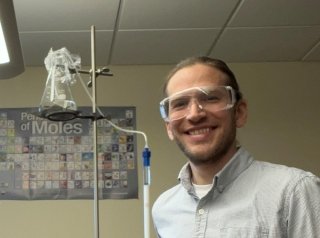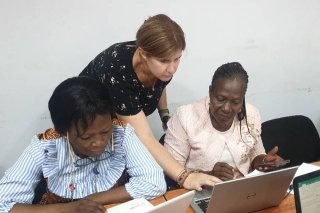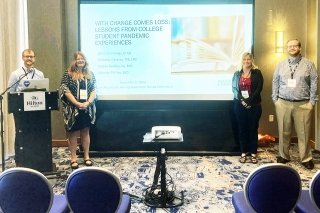CU-Lock Haven chemistry faculty member published in ‘Protein Science’ journal
Posted:

A collaborative team of distinguished researchers, including Dr. Kyle T. Root, associate professor of chemistry at Commonwealth University-Lock Haven and co-authors at East Stroudsburg University and Lehigh University, have recently published an innovative article in the journal “Protein Science” titled “One‐step site‐specific S ‐alkylation of full‐length caveolin‐1: Lipidation modulates the topology of its C‐terminal domain.”
This pioneering research unravels the mysteries surrounding the human membrane protein caveolin-1, which is crucial for cell to cell communication, helping cells respond to mechanical stress and has been implicated in numerous human maladies. Specifically, the nature of the addition of fatty (lipid) groups to a particular region of the protein that the cell performs after the protein has been synthesized was explored using experimental chemistry and computational techniques.
“This work represents a landmark study for the caveolin community,” Root said. “The presence of lipidation within the C-terminus was confirmed nearly 30 years ago yet, the importance was largely ignored by researchers due to limitations apparent in earlier studies. Our research showed an unprecedented glimpse into the role that these attached lipids play in controlling the proteins shape and maintaining a particular shape is key to how proteins work.”
“I am really thrilled at the results we have obtained in tackling this perplexing scientific pursuit,” he added. “I knew that biology would not errantly put the effort into performing this chemistry, were it not important. It will be interesting to see what biologists will take from our work.”
Protein Science publishes papers by leading scientist from all over the world that report on advances in the understanding of proteins in the broadest sense.
The research team’s dedication and expertise have led to the publication of this pivotal work, which is poised to influence the caveolin-1 community profoundly. National Institutes of Health provided crucial funding support to make the study a reality. The full article is accessible at www.ncbi.nlm.nih.gov/pmc/articles/PMC10599104/.



